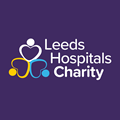Story
Thanks for taking the time to visit my JustGiving page.
Paraxysmal Nocturnal Hemoglobinuria (PNH)
Paroxysmal nocturnal hemoglobinuria (PNH) is a rare, acquired, life-threatening disease of the blood. The disease is characterized by destruction of red blood cells (hemolytic anemia), blood clots (thrombosis), impaired bone marrow function, and a 3 to 5% risk of developing leukemia. PNH affects only 1-2 persons per million of the population and is a disease of young adults (median age of diagnosis 35-40 years of age) with occasional cases diagnosed in childhood or adolescence. PNH is closely related to aplastic anemia. In fact, up to 30% of newly diagnosed cases of PNH evolve from aplastic anemia. Similarly, the risk developing PNH after treatment for aplastic anemia with immunosuppressive therapy (anti-thymocyte globulin and cyclosporine) is approximately 20 to 30%. The median survival after diagnosis is 10 years; however, some patients can survive for decades with only minor symptoms
Aplastic anemia is a type of anemia. The term "anemia" usually refers to a condition in which your blood has a lower than normal number of red blood cells. Anemia also can occur if your red blood cells don't contain enough hemoglobin (HEE-muh-glow-bin). This iron-rich protein helps carry oxygen to your body.
In people who have aplastic anemia, the body doesn't make enough red blood cells, white blood cells, and platelets. This is because the bone marrow's stem cells are damaged. (Aplastic anemia also is called bone marrow failure.)
Many diseases, conditions, and factors can damage the stem cells. These conditions can be acquired or inherited. "Acquired" means you aren't born with the condition, but you develop it. "Inherited" means your parents passed the gene for the condition on to you.
In many people who have aplastic anemia, the cause is unknown.
Outlook
Aplastic anemia is a rare but serious disorder. It can develop suddenly or slowly. The disorder tends to get worse over time, unless its cause is found and treated. Treatments for aplastic anemia include blood transfusions, blood and marrow stem cell transplants, and medicines.
With prompt and proper care, many people who have aplastic anemia can be successfully treated. Blood and marrow stem cell transplants may offer a cure for some people who have aplastic anemia
Myself Steven and two brothers David and John are doing a cycle ride from John o Groats to Lands End to raise awareness of a very rare illness "Aplastic Anemia/PNH.
This is a condition our sister Catherine got in 2012. In the first two years of her treatment she had two stem cell transplants, the 1st been from a Rabbit which didn't show much improvement the 2nd from a Horse which seems to be working for her at the moment. In the time she as been ill she as been very ill picking up serious infections....but she's a fighter and will not give up.
We are raising awareness for the PNH/AA CLINIC, Jimmy's Bexley Wing Leeds.
This is the clinic Catherine attends every 4 to 6 weeks to keep an eye on her progress.
We know this is very close to our Catherine and that she feels she would like to give a little back for her past treatment and on going treatment. Hopefully this will go to any future research for a cure for this awful life threaterning condition.
Catherine would like to give everyone who takes to take the time to read this a great big Thankyou.
